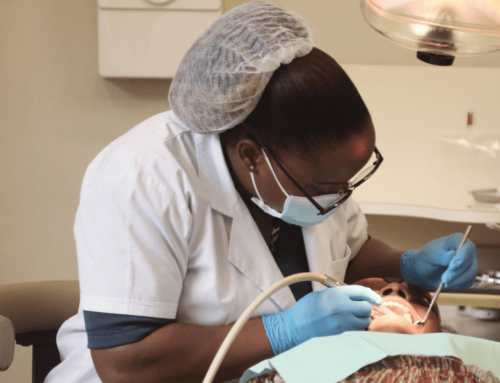Gap years can be really useful for a number of reasons. Like:
- I am literally only 18 and I have no idea what I want to study
- I don’t really have a CV or any experience and I think it would be good to get some before I start studying
- I don’t even think I want to study further
You probably have loads of other reasons, too. But if you have decided to take the the leap and do a gap year, I’m assuming you don’t want to spend it sitting at home! So what are some options you have to really make a gap year count?
Upskill
You learn quite a bit in school, like all about parallelograms and kites and and cumulonimbus clouds. And it’s great. But, unless you become a teacher, it’s not knowledge that’s really going to help you do your job or make money. That’s where your gap year comes in. You can use it to learn skills that you will actually be able to use at work.
Learn a new skill
Coding
As someone who runs a tech company I obviously think that learning to code is the best thing anyone anywhere can do with their time. I am biased, but find out the average salary of a software developer in your country and you might become biased too.
Also, there are loads of places you can learn to code completely for free. Here are a few places to start:
Social Media Marketing
Social media marketing is a staple for most businesses, and often young people, who use lots of social media themselves, are perfect candidates for the role of social media marketer. Learning social media marketing could be a great way to find a job during or after your gap year.
You could use these places to start:
User Experience Design
User Experience (often called UX) design involves helping make digital products easy to use. The most popular tool at the moment is called Figma, so getting a handle on Figma during your gap year will really help you get into UX design. It’s a great way to get into into tech, especially if coding is not for you.
You can try out these courses to see if you like it:
Take some University Courses to prepare for next year
This will also be really useful if you have taken a gap year because you want to work out what to study next year. You can dip your toe into thousands of courses from loads of universities for free – helping you work out what studying a subject at university is actually like.
Free online courses from South African universities
Free online courses from International Universities
- MIT – this is one of the best and most extensive catalogues of university courses on the internet. MIT has made literally thousands of lecture recordings available from every subject you can think of. It’s a great way to get an introduction to hundreds of different university subjects.
- Harvard
- Stanford
- Oxford University
- Cambridge University
- The University of Hong Kong
- The University of Nottingham
- University of California, Berkley
- University of Peking
- National University of Singapore
- Columbia
- Babson College
- Berklee
This will help you work out what you like and don’t like, making it easier to choose what to study when your gap year is over.
Build your CV
A lot of people leave school with a pretty empty CV. And the bad news is that matric + undergraduate degree is usually not that impressive to employers. You want to show that you are able to apply what you’ve been studying, and taking your gap year to do this could be very useful.
There are a couple of ways that you can grow your CV while on a gap year:
Internships
Internships look amazing on your CV, but they can be a bit difficult to get if you don’t have any skills – so do some of the stuff above to help you get one :)
The other annoying thing about internships is that it’s usually easier to get one if you’ve already had one. A great place that you can do your first internship is The Forage, where you can do a short online internship.
Doing an internship on The Forage plus some online courses should put you in a good place to start applying for internships in person.
Side note: if you have any family friends or relatives with businesses another really good strategy can be asking if you can work for them for a couple of months. You would generally not be paid for this, but it could really help with getting a paid job in the future.
Volunteer experience
Another great way to boost your CV (and one that might help you get internships) is to volunteer. Doing volunteer work at local NGOs is a really great way to boost your CV, and also gain amazing work experience. Some NGOs where you could apply to volunteer are:
- Langa for Men, an NGO fighting Gender Based Violence in Cape Town
- Equal Education, a membership-based organisation improving the quality of schools in South Africa
- The Social Justice Coalition, an NGO fighting for the constitutional rights of South Africans living in informal settlements
If you don’t like the sound of any of these though, there are literally hundreds of NGOs where you could volunteer – and many will be glad to get an extra pair of helping hands.
Work experience
Work experience can be the most useful thin to get during a gap year, but also the most difficult to find. We would recommend that you start with some upskilling and getting internship in the first half of the gap year and aim to get work experience for the second half.
The best way to find your first job will be to use the network you create while doing your volunteer and intern work. If impress the people you intern or volunteer for, they will usually be more than happy to recommend you to their friends and colleagues for entry level jobs.
Prepare yourself for “adulting”
Regardless of what you choose to do on your gap year, you should definitely be preparing yourself for moving out of home and taking control of your own life. This will involve doing two things:
Learning how to manage your finances
This is going to be a really big part of being an adult, whether you like it or not. So you may as well set yourself up for success and make sure that when you do start earning money you know exactly how to manage it. Here are my top recommendations for learning to manage your money:
Learning how to get organised
Also gonna be important, whether you like it or not. Your life will probably be very stressful if you are constantly late, missing deadlines, forgetting half the stuff on the shopping list, and never have any time to clean your house. So probably best to get on top of that ASAP. What better way to start than by planning our your gap year?
You can use these resources to get started:
Okay let’s goooooo!
So now that you have read all about what you can do on your gap year, and how to organise your time – it’s time for you write up that plan, chat to your parents, and think about how exactly you are going to spend your gap year!
Here are some more videos about gap years that you might find helpful:









